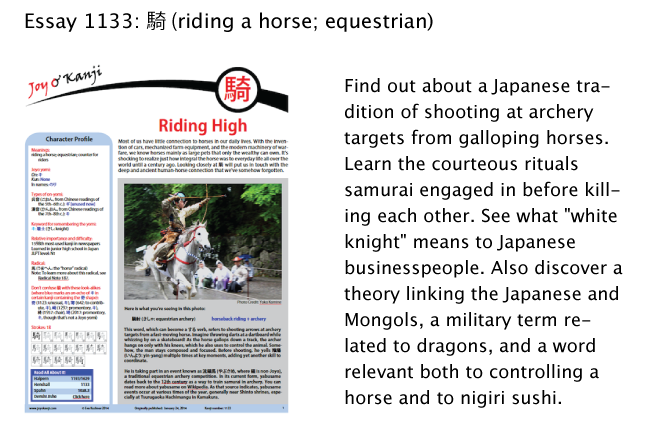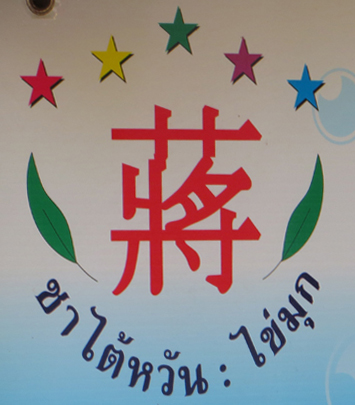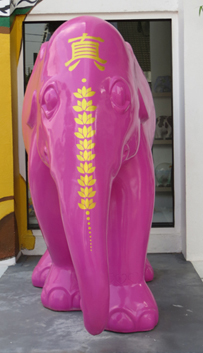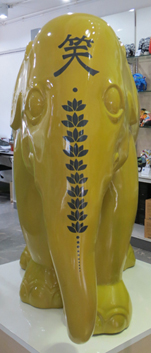Sweet Surprise
Over the last two weeks, I've shared with you a taste of Taiwan as I experienced it in December when I was blissfully immersed in all the characters.

This says 台灣好滋味 (good tastes of Taiwan), where 灣 is the old version of 湾 (bay).
How could I not feel that way when there were so many all around me?
Oh so many. At all turns.
And of course I could read some, so how could I possibly stop staring, gleefully picking out the ones I knew?
However, we stayed in Taiwan just a short time before heading to Thailand. A Japanese friend who has made about 10 trips to Thailand cautioned me that although everything was wonderful about the place, I would find no kanji there. I was therefore all the happier to see Chinese characters everywhere, undoubtedly because the Chinese are now avid tourists in Thailand.
These shorts covered with hanzi (the Chinese word for Chinese characters) were for sale in Bangkok.
Again and again I spotted hanzi alongside the Thai script. What a wondrous sight that was!
The non-Joyo hanzi 蔣 is the name of a plant and is a surname, says Denshi Jisho. By contrast, YellowBridge, an online Chinese-English dictionary, says that 蔣 refers to the Chiang of Chiang Kai-shek.
In the sign below, I was thrilled to spot the repeating hanzi because I had just written about the non-Joyo 甜 (sweet) in the December newsletter (in the photo of litter):
What a sweet surprise!
I saw hanzi by itself in signs in medians.
And in a shop devoted to all things elephant, hanzi was the crowning touch on several regal elephants.
From left to right, we have the non-Joyo 智 ("wisdom" in both languages), 真 ("truth" in both languages, with a slightly different shape that you can see on YellowBridge but that I can't seem to reproduce here), and 笑 ("laughter; smile" in both languages).
Chinese characters abounded in Thailand, and some signs were strictly Japanese. Who has the last laugh now?! I think I did, but contrary to that expression, it was a laughter filled with pure joy and surprise.
Let's shift from elephants to horses. The newest essay is on 騎, and as you can see from the "horse" radical, 馬, this kanji has a strong connection to horses. Here's a sneak preview:

Have a great weekend!











Comments